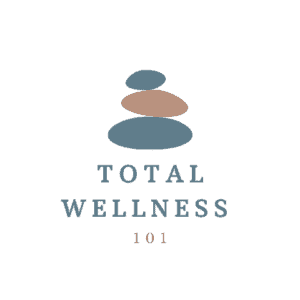As American society becomes seemingly more “advanced”, health is starting to actually go downhill. They are even saying that this generation won’t outlive the previous one due to the current health crisis in the United States. As foods become more processed, less whole and natural foods are a part of the average American diet, and with that brings disease and malnutrition. Here we will discuss some of the common nutrient deficiencies that people have and some of the best ways to increase or supplement them.
What Nutrients Are Americans Deficient In?
Each country has its own nutritional challenges. And developing countries are different from more developed countries such as the United States or Europe. Most Americans will at least meet the bare minimum of what is needed to avoid serious disease though there is still a majority that are not consuming the recommended amount of micronutrients (vitamins and minerals) in their bodies. What this does is slowly affect their mental health, risk of chronic disease, and more.
The American diet struggles to provide what is needed despite many Americans having adequate calories or even being overweight due to a caloric surplus. This is because many Americans do not consume micronutrient rich foods. These are commonly referred to as “empty calories” such as donuts, white bread, chips, etc. There are many foods that contain high amounts of calories, fat, and sodium yet lack any real nutrients.
Oregon State University published a review of data from the NHANES and other dietary sources which highlights some of the key deficiencies in the US populations. We will go into some of these below and why they are crucial for our health.
Calcium
It appears that more than 40% of the US population is not consuming sufficient calcium. Calcium is crucial for bone health and presents a risk for osteoporosis when it is deficient. This makes it especially important for woman who have more bone loss post-menopause. It also plays a role in muscle contraction, nerve function, and blood clotting. You can consume more calcium through dairy products or fortified products for those that are intolerant though there is also affordable supplementation.
Iron
Iron is another concern especially in the female population and those who are or will become pregnant. Iron is an essential mineral that plays a vital role in many biological processes. It is necessary for the production of hemoglobin, which transports oxygen in the blood, and myoglobin, which stores oxygen in muscle cells. Iron is also involved in cell growth, metabolism, and the production of enzymes and hormones.
A lack of iron can lead to iron deficiency anemia, which is a common condition characterized by a decrease in the number of red blood cells. Symptoms of iron deficiency anemia include fatigue, weakness, pale skin, and shortness of breath. Severe cases can lead to heart problems, organ damage, and death.
Women on their periods or who are pregnant are at greater risk for anemic symptoms. Foods rich in iron include meats, seafood, leafy green vegetables, beans, and iron fortified cereals.
Vitamins A, C, D, and E
The NHANES national survey found that 43% of Americans didn’t meet the daily requirements for vitamin A, 38.9% for vitamin C, 94% for vitamin D, and 88.5% for vitamin E.
Those are some pretty disturbing numbers.
Vitamin A is needed for vision and healthy skin and mucous membranes. It is found in some animal sources like fortified dairy products, eggs, and liver. It is also found in beta-carotene form in leafy dark green vegetables and orange fruits.
Vitamin C is a powerful antioxidant that is needed for protein metabolism but also aids in the immune system and iron absorption. Lack of vitamin C is what caused the infamous scurvy disease in early sailors. It is found in citrus fruits, cantaloupe, strawberries, peppers, and broccoli to list a few.
Vitamin D had the most alarming numbers with 94% of Americans not meeting the daily recommendations. Vitamin D is naturally produced by the skin when exposed to sunlight and can also be consumed. It is used to absorb calcium that is stored in the bones to keep them strong. Low levels can increase the risk of bone diseases. Low vitamin D has also been correlated with higher rates of depression and anxiety. You can find vitamin D in egg yolks, liver, fatty fish, and fortified milk.
Vitamin E is an antioxidant that protects your cell walls which is especially important for the skin. You can find it in polyunsaturated plant oils from soybeans, corn, and cottonseed. It is also in leafy green vegetables, whole grain products, eggs, nuts, and seeds.
Magnesium
44.1% of the population don’t consume adequate magnesium either. Magnesium is an important mineral that affects numerous functions. It regulates muscle and nerve function, blood sugar levels, and blood pressure, as well as makes protein and bone. Low intake of magnesium is associated with increased risk of some chronic diseases like cardiovascular disease, type II diabetes, and osteoporosis.
Many take magnesium supplements as a form of muscle relaxant as well and it’s been shown to help with sleep when taken at night. Since it aids in nerve function, it has been shown to help with anxiety as well in some populations. Many take it in combination with zinc as well since it aids in the absorption and compliments magnesium’s effects. You can find these ZMA (Zinc/ Magnesium) supplements on the market like this one. Take it on an empty stomach and before bed for best results.
Potassium
The same survey found that nearly 100% of Americans were deficient in potassium. Potassium is a vital mineral that is essential for the proper functioning of the human body. It is involved in muscle contraction, nerve transmission, and heart function. Potassium is also essential for maintaining fluid balance in the body and for keeping the electrolyte balance in the blood. A deficiency of potassium can lead to serious health problems, including muscle weakness, heart arrhythmias, and digestive disorders.
Everyone knows that you can find potassium in bananas but you will find potassium in most fruits in vegetables that you consume.
Omega-3 Fatty Acids
We also wanted to touch on this important fatty acid! There is not necessarily a daily recommended intake for omega 3 fatty acids but we know that they are very beneficial for your health and the American diet lacks it. It is a type of polyunsaturated fat that we find primarily in fatty fish oil as well as in seeds like chia or flax.
Omega-3 fatty acids play a role especially in heart and brain health. They lower the risk of heart disease, reduce depression, reduce inflammation, foster healthier pregnancies and more!
The problem is most Americans aren’t eating fish every day like some cultures do. One way to get around that is to take a fish oil or Omega-3 supplement. We recommend Omega-Jym because it is a highly concentrated dose and contains all you need for the day!
What Can We Do?
When you dig into the issue, most of our nutrient deficiencies in the United States stem from the fact that we eat little fruit and vegetables. If the foods we eat are empty or not nutrient-rich, all we will have is the macronutrients, meaning carbohydrates, protein, and fat. On top of that, those foods are also high in sodium so most Americans consume way too much sodium which increases the risk of hypertension and obesity.
So first, introduce more fruit and vegetables into your diet. You probably don’t even notice how little you are eating at the present moment. If that is difficult for you, consider supplementation as well since that is certainly better than being deficient. You can have a multivitamin which typically will help with Vitamins A,C,D, and E as well as calcium, iron, and some magnesium depending on the brand. You could also do a separate supplement for each vitamin and mineral as well like a zinc/magnesium supplement. You will need a separate supplement just for Omega-3 fatty acids because they are much larger. So we would recommend a multivitamin and an Omega-3 fish oil supplement to fix many of the deficiencies that we have. However, always consult your doctor.
In short, do what you can to include these micronutrients in your diet though it may be a good idea to utilize supplementation as well!
Also, enjoy 10% of all products we’ve recommended from jymsupplementscience.com with code WELLNESS101
Recent Posts
In the pursuit of professional success, the modern working professional often finds solace in a cup of coffee or energy drink. Caffeine, the world's most widely consumed psychoactive substance, has...
Strategies for Sales Professionals to Reduce Back Pain and Injuries
In the fast-paced world of sales, professionals often find themselves navigating through long hours, client meetings, and constant travel. Amidst the pursuit of closing deals and meeting targets, the...

